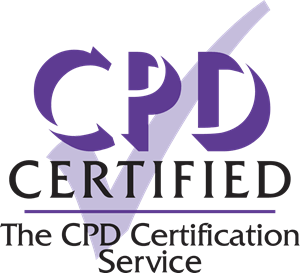Do you know what happens when you say “OK Google” to a Google device? Is your Google Home always listening? Following on the Foundations of Tiny ML course, Applications of TinyML will give you the opportunity to see tiny machine learning applications in practice. This course features real-world case studies, guided by industry leaders, that examine deployment challenges on tiny or deeply embedded devices. Dive into the code for using sensor data for tasks such as gesture detection and voice recognition. Focusing on the neural network of the applications, specifically on training and inference, you will review the code behind “OK Google,” “Alexa,” and smartphone features on Android and Apple . Learn about real-word industry applications of TinyML as well as Keyword Spotting, Visual Wake Words, Anomaly Detection, Dataset Engineering, and Responsible Artificial Intelligence. Tiny Machine Learning (TinyML) is one of the fastest-growing areas of deep learning and is rapidly becoming more accessible. The second course in the TinyML Professional Certificate program, Applications of TinyML shows you the code behind some of the world’s most widely-used TinyML devices.
Deploying Machine Learning (Tiny ML)
Have you wanted to build a TinyML device? In Deploying TinyML, you will learn the software, write the code, and deploy the model to your own tiny microcontroller-based device. Before you know it, you’ll be implementing an entire TinyML application. A one-of-a-kind course, Deploying TinyML is a mix of computer science and electrical engineering. Gain hands-on experience with embedded systems, machine learning training, and machine learning deployment using TensorFlow Lite for Microcontrollers, to make your own microcontroller operational for implementing applications such as voice recognition, sound detection, and gesture detection.The course features projects based on a TinyML Program Kit that includes an Arduino board with onboard sensors and an ARM Cortex-M4 microcontroller. The kit has everything you need to build applications around image recognition, audio processing, and gesture detection. Before you know it, you’ll be implementing an entire tiny machine learning application. Tiny Machine Learning (TinyML) is one of the fastest-growing areas of deep learning and is rapidly becoming more accessible. The third course in the TinyML Professional Certificate program, Deploying TinyML provides hands-on experience with deploying TinyML to a physical device.
MLOps for Scaling Machine Learning (TinyML)
Are you ready to scale your (tiny) machine-learning application? Do you have the infrastructure in place to grow? Do you know what resources you need to take your product from a proof-of-concept algorithm on a device to a substantial business? Machine Learning (ML) is more than just technology and an algorithm; it’s about deployment, consistent feedback, and optimization. Today, more than 87% of data science projects never make it into production. To support organizations in coming up to speed faster in this critical domain it is essential to understand Machine Learning Operations (MLOps). This course introduces you to MLOps through the lens of TinyML (Tiny Machine Learning) to help you deploy and monitor your applications responsibly at scale. MLOps is a systematic way of approaching Machine Learning from a business perspective. This course will teach you to consider the operational concerns around Machine Learning deployment, such as automating the deployment and maintenance of a (tiny) Machine Learning application at scale. In addition, you’ll learn about relevant advanced concepts including neural architecture search, allowing you to optimize your models’ architectures automatically; federated learning, allowing your devices to learn from each other; and benchmarking, enabling you to performance test your hardware before pushing the models into production. This course focuses on MLOps for TinyML (Tiny Machine Learning) systems, revealing the unique challenges for TinyML deployments. Through real-world examples, you will learn how tiny devices, such as Google Homes or smartphones, are deployed and updated once they’re with the end consumer, experiencing the complete product life cycle instead of just laboratory examples. Are you ready for a billion users?
Web Programming with Python and JavaScript
Topics include database design, scalability, security, and user experience. Through hands-on projects, you’ll learn to write and use APIs, create interactive UIs, and leverage cloud services like GitHub and Heroku. By the course’s end, you’ll emerge with knowledge and experience in principles, languages, and tools that empower you to design and deploy applications on the Internet.
Computer Science For Lawyers


